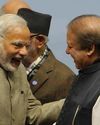THE FUNCTIONING OF PARLIAMENTARY SESSIONS HAS DEGENERATED TO SUCH AN ABYSMAL LEVEL THAT CITIZENS HAVE STARTED WONDERING WHETHER INDIAN DEMOCRACY IS COLLAPSING.

IT WAS 1996. The erstwhile Soviet Union had disintegrated and Russia’s economy was in dire straits. Under Boris Yeltsin, the country was headed for elections and the Sukhoi aircraft factory, located in his constituency, was on the verge of closure, rendering a multitude of workers jobless. It would have affected Yeltsin’s campaign adversely.
Invoking decades of close friendship and military assistance, Yeltsin requested India’s caretaker prime minister P V Narasimha Rao for an advance for the Sukhoi factory even before concluding the deal for the aircraft. It was conveyed that such a gesture would be considered a special favour. The advance was to be subsequently adjusted against the final contract. Undoubtedly, it would have been a patently irregular act but Rao realised the political and diplomatic benefits for India. In addition, the Sukhoi was a first-rate fighter jet. However, he knew that the opposition parties would term it a scam to fault his government.
With a view to pre-empt such a situation, it was decided to get the main opposition party on board. Atal Behari Vajpayee and Jaswant Singh were invited by the then defence minister Mulayam Singh Yadav to attend a presentation on the subject. They were taken into confidence and their concurrence obtained. Consequently, the irregular advance of $365 million never became a scam and no controversy was ever generated. The country benefited by getting a modern aircraft at highly favourable terms as Yeltsin remembered the favour done to Russia in its hour of need.
Thus an act done in good faith by the government with the national interest in mind was supported by the opposition party. Vajpayee understood the rationale and did not want to scuttle the deal for an excellent aircraft. It was a pragmatic approach and the matter was never made an election issue.
This story is from the October 2017 edition of Swarajya Mag.
Start your 7-day Magzter GOLD free trial to access thousands of curated premium stories, and 9,000+ magazines and newspapers.
Already a subscriber ? Sign In
This story is from the October 2017 edition of Swarajya Mag.
Start your 7-day Magzter GOLD free trial to access thousands of curated premium stories, and 9,000+ magazines and newspapers.
Already a subscriber? Sign In

Refuging Progess
There is a well-orchestrated global conspiracy to deny scientific and technological developments from the West to Third World countries.

The Monk Of Science
Vivekananda believed that Religion should be subjected to scientific methods of investigation. The third and concluding part of our series on the Swami and his views on science.
The Next Step
Indian technical manpower can be trained for high-value-added emerging services in the era of mass commoditisation of hardware.
The Threat Of Autarchy
The force of globalisation is an irreversible reality, and it is countries like India and China that will nurture it going forward.

Neanderthals: The Womb Of Caves
Recent discoveries indicate that Neanderthals may have had a rich inner life, including symbolic thought. Indeed, they may have been the progenitors of human religions.

Getting India's World Right
Incremental concessions will get India nowhere with Pakistan and China. What we need is a classically conservative foreign policy, based on realism.

The Hesitant Orbit
In order to march boldly ahead into the deep space, New Delhi must work towards building a station, boost its techno-economic planning and use the Indian Space Research Organisation smartly.

Nudges And Narratives
The debate surrounding Sanjay Leela Bhansali’s Padmavati brings India a complex network of portraits within a cultural world-system.

The Spell Of Specialisation
THE INDIAN ADMINISTRATIVE SERVICE NEEDS AN URGENT REJIG. THE KEY TO SPEED AND EFFICIENCY LIES IN PUTTING AN END TO A GENERALIST APPROACH AND IN GOING FOR A NEW SERVICE.
The Great Gamble
With demonetisation, the prime minister has taken a huge risk— both economic and political. He must succeed, because this move could transform both our economy and our society.